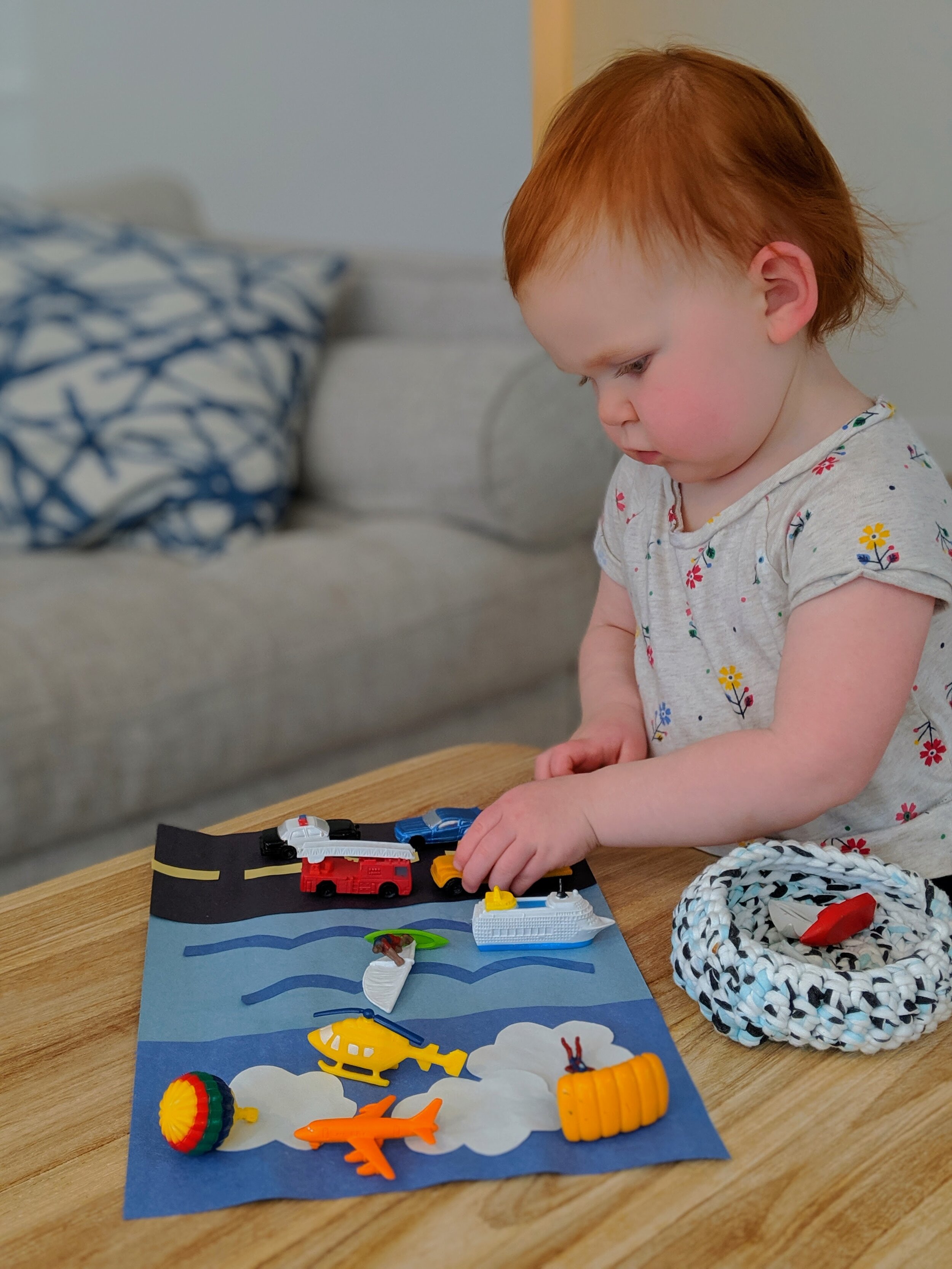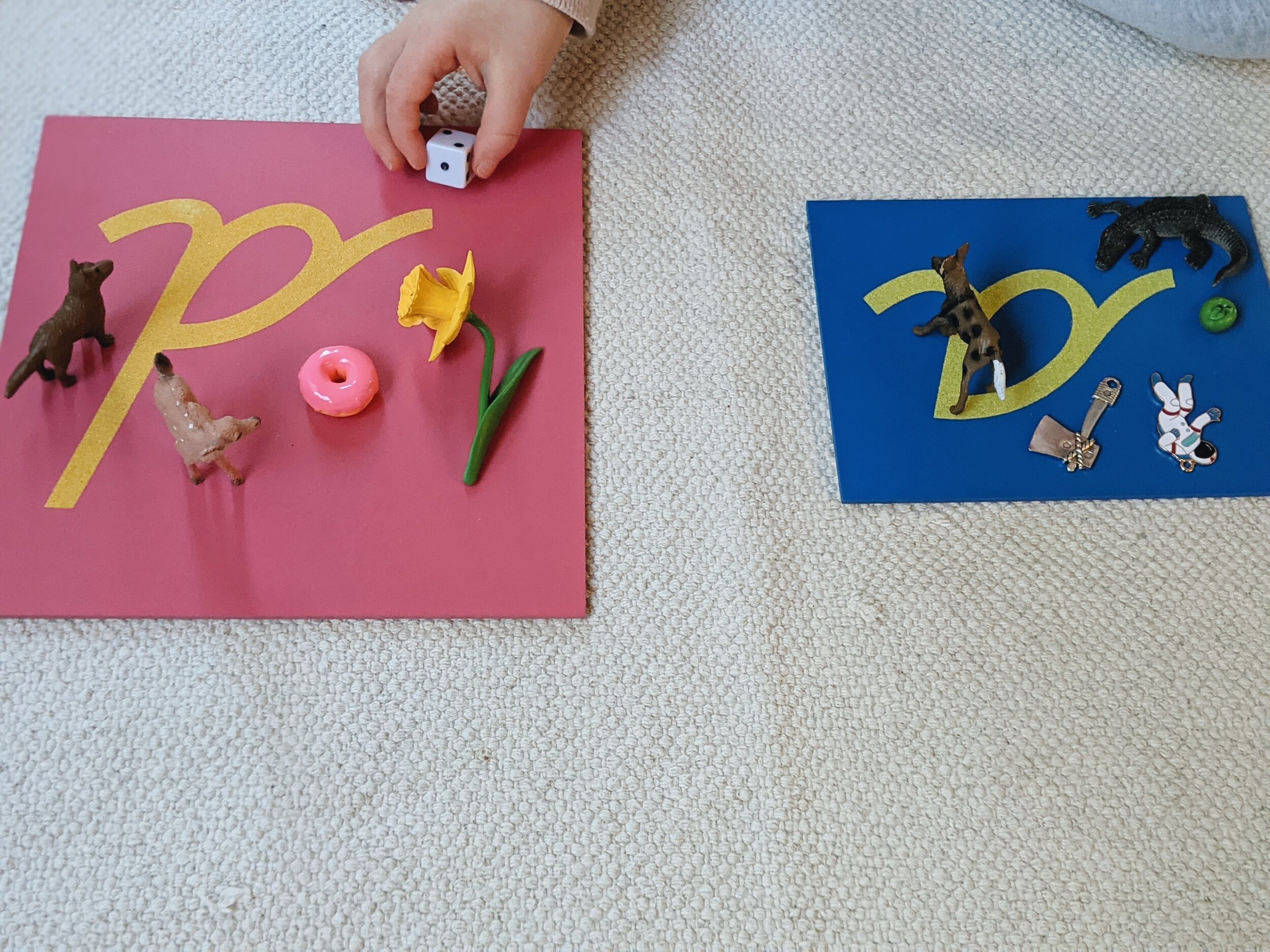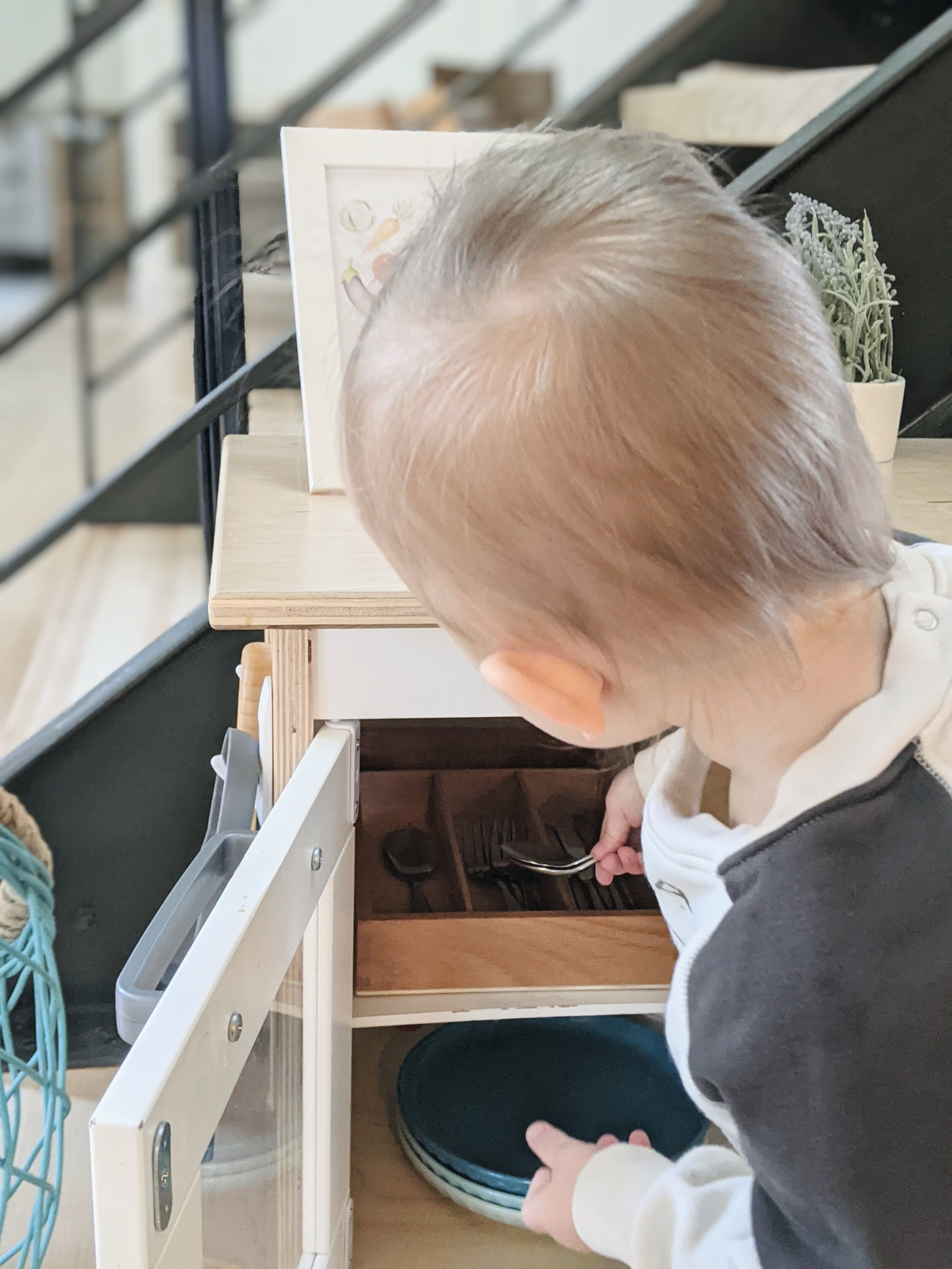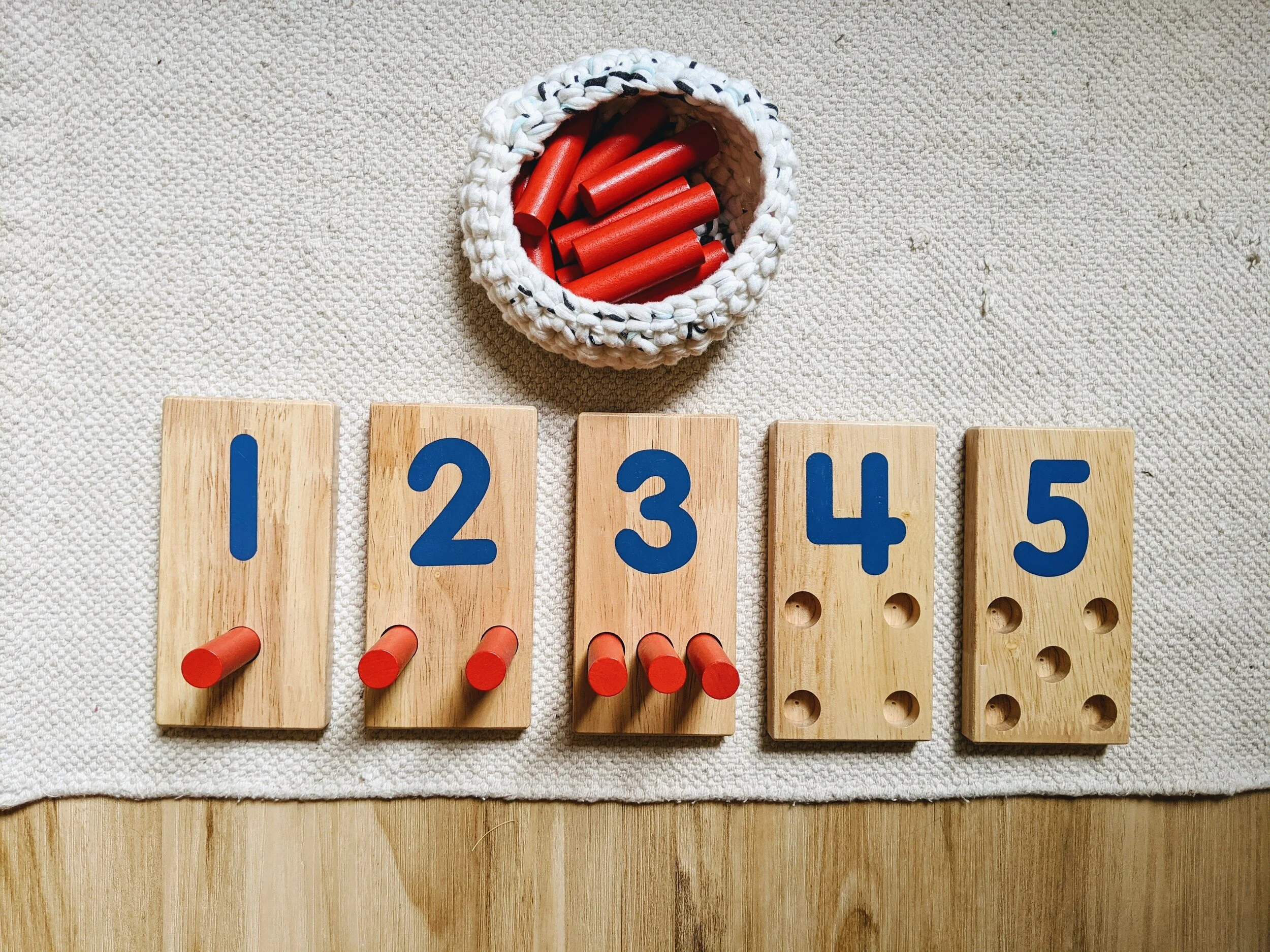An Introduction to Sorting
Montessori in Real Life
Sorting is an activity toddlers begin to enjoy as they enter the sensitive period for order. In a world so big, order gives them a sense of control and comfort. One way toddlers create order is through categorizing, or sorting. We see this naturally through play as toddlers group or line up vehicles or animals together. We can also set up specific activities to help toddlers learn about new kinds of categories. Color is an obvious category to start with. Though toddlers may be able to discriminate colors and categorize earlier, we don’t typically see them sorting in their play until 18-21 months.
Sorting Bowls or Tray: When I first introduce sorting, I use these colored bowls and chips. I find beginning sorting activities are more successful when it involves matching too. To keep this as clear and simple as possible, I start with only two colors and two or three chips of each color. I like this set of bowls/chips because the color variable is isolated, meaning the only characteristic that’s different between the two chips is the color.
You can also replicate this at home with what you already have, for example, a blue and red cup and blue or red objects you have around. You just want to make sure that the objects are all identical except for the color. Otherwise, young toddlers will be confused whether they are sorting by type of toy, shape, or any other number of characteristics.
To set this up, I put the blue and red bowls on a tray with the chips in a neutral, separate bowl, or simply on the tray. I place the two bowls in front of me, with space in between, and pick up one chip. I label it with one word e.g. “red” then pause and say “red” again. I slowly place the red chip in the red bowl. I repeat this with the rest of the chips, labeling and sorting accordingly. Toddlers may not let us get through them all, and that’s okay. We can simply let them have a turn with it.
We do not want to correct in the moment. It’s okay if they put the chips in bowls, not paying attention to color. That tells us that they aren’t ready for this or that we need to model again. We can wait until another more appropriate time to model and then give them a few more chances to explore. If they are enjoying it but not sorting by color, let them play with it as they wish. Children all develop this interest and skill at different times. If it’s frustrating to them, consider removing and waiting a few weeks to rotate back in.
Once our toddler masters this simple sorting task, we can introduce more colors and more chips. We can also move on to a sorting tray, in which we set out three pairs of objects and let them sort into the divided spaces of the tray. As with before, we ideally want only one variable to be different, e.g. if they are sorting by shape, make sure all other features of the objects are the same except for the shape. Examples include sorting by size, texture, or shape. Objects found in nature can be great for these activities!
Older toddlers can do more complex sorting, such as sorting vehicles into land/water/air or sorting living vs. non-living things. Primary-age children can sort animals by continent or sort objects by their beginning sound. There are also plenty of practical life applications for sorting. We can let our toddlers sort items of clothing, sort socks by pairs, or sort silverware from the dishwasher into the silverware holder. The sorting possibilities are endless!
Product links (Note: This post contains affiliate links. If you purchase a product through one of these links, you won’t pay anything extra, but I will get a small commission, which helps keep this blog going. Thanks for supporting Montessori in Real Life!)
Small sorting tray (larger one was from a sensory box)
Toob vehicles (DIY sorting scene)

















